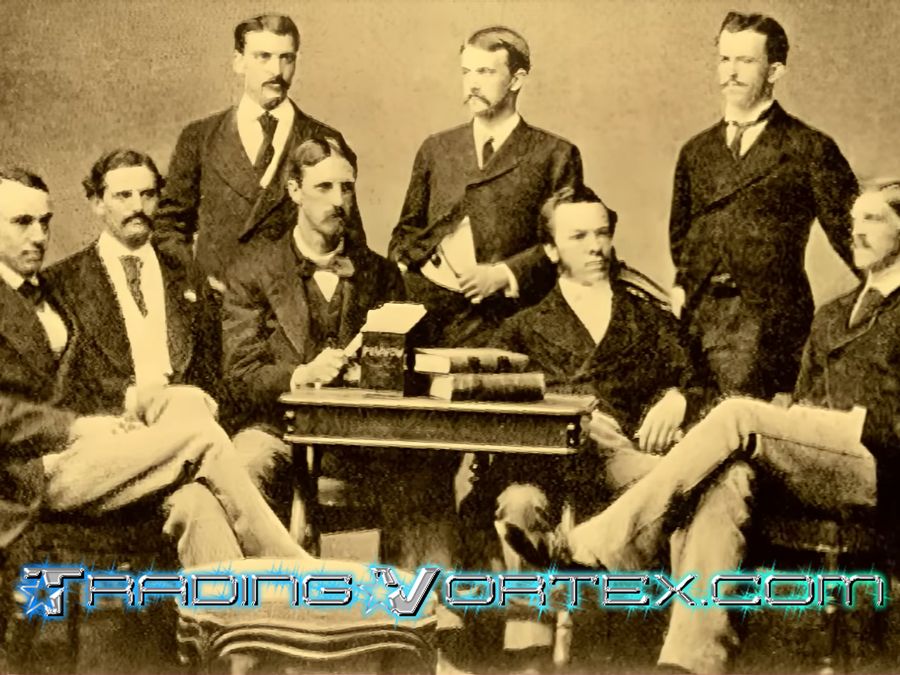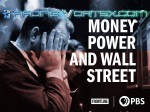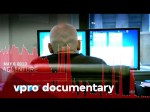Navigating the Landscape of Corporate Power and Social Responsibility:
In an era where corporate influence is on the rise, the dynamics between governments, corporations, and citizens have undergone significant shifts. The documentary "The Corporation" sheds light on the evolving relationship between corporations and society, offering insights into the global impact of corporate power and the quest for social responsibility. From examining the reach of corporate dominance to exploring the possibilities of sustainable change, the documentary presents a thought-provoking narrative on the complexities of our modern world.
Corporate Dominance and Globalization:
Gone are the days when corporations needed coups to exert control over governments. The film highlights how corporations have gone global, resulting in a reduced level of government influence. The Chairman of Goodyear Tire serves as a case in point, illustrating that corporations have gained unprecedented power in shaping policies and influencing decisions. With globalization, governments find themselves lacking the leverage they once possessed, raising concerns about the balance of power between corporations and the state.
The Battle for Resources and Grassroots Opposition:
One of the documentary's focal points is the battle for control over resources through trade agreements. As nations gathered to draft far-reaching trade agreements, grassroots organizations emerged as a formidable opposition force. Despite business lobbyists dismissing dissent, citizens from diverse backgrounds united against the privatization of resources. This grassroots movement demonstrates the potential for collective action to challenge corporate-driven agendas and protect societal interests.
Corporate Social Responsibility: A Market-Driven Tactic.
The concept of corporate social responsibility (CSR) comes under scrutiny in the film. It is portrayed as a market-driven tactic rather than a fundamental shift in corporate values. While some corporations engage in CSR for positive public perception, questions arise about who defines and enforces social responsibility. The documentary underscores the importance of distinguishing between genuine commitment to societal well-being and mere strategic maneuvers to enhance a corporation's image.
Government's Role and People's Responsibility:
Amid discussions on CSR, the documentary emphasizes the role of governments in decision-making processes that impact society. It raises concerns about letting corporations decide on matters that affect the collective welfare. The film argues that governments, not corporations, should wield the power to determine the direction of societal progress, ensuring decisions are aligned with the needs of the people.
Collective Efforts for Change:
As the narrative unfolds, the documentary introduces a theme of collective efforts for change. It highlights initiatives that challenge corporate power through litigation, legislation, and social investment. The film celebrates the successes of grassroots movements, showing how communities worldwide are forging paths toward sustainable alternatives. This collective spirit demonstrates the potential to disrupt traditional power dynamics and steer the course of change.
The Mountain of Sustainability:
A vision of sustainability emerges as a central narrative thread. The documentary calls for a reimagining of industrial practices, advocating for a shift towards renewable energy and responsible resource use. The concept of climbing the "Mountain of Sustainability" serves as a metaphor for the arduous yet essential journey towards a future where harm is minimized, and resources are conserved.
The Power of Dissent and Individual Action:
Even within a corporate-controlled media landscape, dissenting voices can make a significant impact. The film illustrates how individuals and communities can challenge prevailing norms, using capitalism's inherent flaws to drive positive change. While skepticism exists about whether people will take action, the documentary remains hopeful that inspired individuals will leave their comfort zones and catalyze transformative shifts.
Conclusion:
"The Corporation" delves into the intricate interplay between corporate power, government influence, and societal responsibility. It underscores the need for a collective vision and sustained efforts to create a world where corporations are held accountable, governments serve the public good, and individuals recognize their role in shaping a more equitable and sustainable future. As the documentary encourages reflection and discussion, it serves as a call to action for viewers to engage in the ongoing dialogue surrounding corporate influence and social change.
Video Key Points:
- 150 years ago, business corporations had little significance.
- Today, corporations dominate society, rivalling institutions like the Church, Monarchy, and Communist Party.
- The documentary explores the evolution, nature, impacts, and trajectories of corporations.
- The inquiry begins with discussions about inadequate public oversight of corporate giants.
- Observations of lingering market distrust highlight the presence of honest businesses and "bad apples."
- Media debates on corporate ethics devolve into a crisis of confidence in business.
- Diverse voices including CEOs, whistleblowers, brokers, and outsiders depict corporations as enigmatic entities with hidden detriments.
- Corporations are integral to society's puzzle, but monopolization is unsustainable.
- Analogously, corporations resemble sports teams with varying roles working toward success.
- Corporations are akin to familial units, with participants collaborating for shared achievements.
- Corporations wield transformative power similar to ubiquitous telephone systems, shaping lives positively.
- Symbolized by a soaring eagle, corporations often prioritize profit extraction over all else.
- Parallels are drawn to Dr. Frankenstein's creation overpowering its creator, reflecting corporate influence.
- The term "corporate" carries negative connotations; alternate terms like "business" offer a fairer portrayal.
- Defining a corporation remains a challenge, even in academia.
- Corporations involve collaboration to generate profits for shareholders.
- Modern corporations emerged from the industrial age's pursuit of efficiency and profit.
- Originally, corporations served specific functions for the public good, created by states.
- The unintended consequence of the 14th amendment granted corporations personhood status.
- Corporate citizens prioritize short-term profit and lack moral conscience.
- Corporations externalize costs, evading accountability for societal impact.
- Developing nations face exploitation of desperate labor pools, perpetuating impoverishment.
- Export processing zones provide cheap labor but contribute little to local economies or worker well-being.
- The petrochemical era introduced synthetic chemicals linked to cancer and toxic effects.
- Corporate actions are implicated in a disturbing cancer epidemic affecting men and women.
- Received anonymous box of Monsanto documents in 1989, revealing toxicological testing of cows given rBGH.
- BST (Posilac) used in over 25% of U.S. dairy herds, FDA deemed it safe for cows and humans.
- Contrary to Monsanto's claims, files showed chronic inflammation, reproductive issues in cows.
- Independent assessments revealed BST caused pain and suffering in cows, contrary to its purpose.
- Monsanto's pursuit of profit led to poor decisions and disregard for environment and well-being.
- Monsanto's history includes harmful use of Agent Orange in Vietnam, causing birth defects and cancers.
- Corporate crimes of 1990s exposed unethical behavior, fines for pollution, fraud, antitrust violations.
- Metaphor of doomed flight depicts humanity's unsustainable path, with declining ecosystems and species.
- Corporations lack moral compass and exploit for profit, while individuals hold moral responsibility.
- CEOs may care about environment, but profit-driven corporate structures prioritize financial gain.
- Pursuit of limitless profit drives destructive practices like Terminator technology, ignoring ecosystems.
- Task force assessing corporation's environmental impact triggers a shift towards responsibility.
- "The Ecology of Commerce" reshapes mindset from plundering to sustainability, recognizing limits.
- Some products should not be made sustainably, realization that plundering should be illegal.
- Reflection on gravity of actions after September 11th attacks prompts deeper consideration.
- Traders' reaction to significant events, like the 1991 bombing of Iraq, often focuses on financial implications and opportunities for profit.
- The pursuit of profit contrasts with times when certain aspects were considered too sacred or essential for public good to be treated as business opportunities.
- Public institutions have historical significance and protected by tradition, and privatizing them can have negative consequences.
- Privatization can lead to unaccountable power and tyranny, unlike public institutions that may have side benefits and counter-cyclic properties.
- There's a concern about the potential privatization of essential services like education, public health, and the environment, which should be maintained for the common good.
- The concept of trading pollution permits is suggested as a way to limit and control environmental pollution.
- The idea of owning essential resources like air and water is presented as a possible solution to address various problems.
- Advertising's evolution from the past to the present involves greater sophistication and manipulation, especially in targeting children.
- Corporations recognize the power of children's influence on purchases and aim to manipulate this through advertising.
- The impact of advertising on children's vulnerable minds is highlighted, with the use of psychologists and advanced technology.
- Advertising can be both beneficial and harmful, depending on how it's used and who's using it.
- The role of advertising in influencing consumer choices is compared to Henry Ford's emphasis on emotional appeal in selling products.
- Consumer choices are influenced by external factors, including education and advertising, limiting the extent of true freedom in decision-making.
- Corporations hold significant power and influence, often surpassing political representation and shaping societal direction.
- The importance of understanding the rules by which corporations operate and their impact on society is emphasized.
- Corporations are not mere afterthoughts; they wield substantial influence, and it's crucial to consider fundamental change rather than just reform.
- Concerns about implications of a substance being absorbed by the body and its potential effects on human health.
- Deletion of a significant conclusion from the final published report, raising suspicions of secrecy and conspiracy.
- Pressure to pass drugs with questionable safety, including rBST (a hormone used in dairy cattle).
- Preparations for a story, including writing and advertisement, focusing on the safety of milk and its potential link to cancer.
- Interference from a high-priced lawyer hired by Monsanto, leading to doubts and concerns about the story.
- Decision to pull the story temporarily, despite no factual errors and equal representation of both sides.
- Subsequent letter from Monsanto warning of dire consequences if the story airs in Florida due to fears of lawsuits and advertising losses.
- Resistance to the pressure, standing up against misinformation and attempts to manipulate the story.
- Negotiations involving the station's new general manager, Dave, who tries to control the story's content and presentation.
- Refusal to comply with demands to alter the story based on corporate interests and the potential financial impact.
- Battle against rewriting the story with repeated edits to align with corporate preferences, including minimizing negative aspects.
- The struggle against being fired for refusing to distort facts or present a misleading story.
- Whistleblower claim filed against the employer, leading to a trial and a jury verdict of $425,000 for false, distorted, or slanted reporting.
- Fox News' appeal of the verdict and support from other media corporations.
- Discussion of a whistleblower lawsuit and its dismissal, highlighting issues with news distortion and legal protection.
- Mention of rBGH ban upheld in Canada and Europe, contrasting with its presence in U.S. milk supply.
- Worldwide battle for control over water resources, citing Bolivia's struggle against privatization and corporate control.
- The impact of World Bank loans on Bolivia's privatization of essential services and the resulting resistance from the population.
- Corporations no longer need coups to dominate governments.
- Globalization has reduced government control over corporations.
- Governments today lack the power they had decades ago over corporations.
- Grassroots opposition faced a trade agreement draft aiming to privatize resources.
- Business lobbyists disregarded dissent, while global citizens united against the draft.
- Corporate social responsibility is a market-driven tactic, not a fundamental shift.
- Accountability is rooted in the marketplace, shareholders, and public perception.
- Questions arise about defining social responsibility and corporate decision-making.
- Decisions affecting society should be made by government, not corporations.
- People should take responsibility for collective actions and environmental harm.
- Alternatives are emerging through collective efforts for positive change.
- Achieving sustainability requires a compelling narrative, focusing on harm reduction, material reuse, and renewable energy.
- Collaborative efforts are necessary to address weaknesses in corporate structures.
- Corporate power can be challenged through litigation, legislation, and social investment.
- A collective vision is vital for meaningful change.
- Change involves reevaluating and transforming capital and property systems.
- Communities around the world are developing sustainable systems for the Earth and humanity.
- Dissenting voices within corporate-controlled media can influence change.
- Exploiting capitalism's greed flaw can lead to positive changes.
- While some doubt people's willingness to act, others believe change is driven by inspired individuals leaving their comfort zones.

































 TradingVortex.com® 2019 © All Rights Reserved.
TradingVortex.com® 2019 © All Rights Reserved.